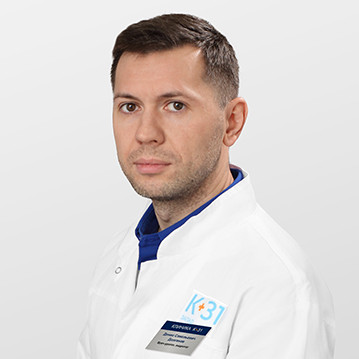Worried about pain in the lumbar region and weakness? Make an appointment with a urologist at a multidisciplinary clinic "K + 31" in Moscow. Comprehensive diagnostics will allow to exclude a kidney tumor or to identify a pathological formation on the early stage of development.
Kidney tumors are a group of neoplasms that form as a result of the proliferation of kidney tissue cells.
Types of tumors and their causes
Benign tumors grow slowly and almost do not reduce the functional activity of the organ. They appear in renal pelvis or parenchymal tissue. Benign tumors include papillomas, fibromas, hemangiomas, fibroids, lipomas, adenomas, etc.
Renal cancer is a malignant tumor that poses a clear threat to the life of the patient. They are fast the rate of increase and the ability to germinate into surrounding tissues (invasiveness). Regenerated cells can spread throughout the body with the formation of secondary foci-metastases.
Statistics: Kidney cancer in men is detected 2 times more often than in women. Most patients are over 60 years of age and older.
According to the origin of the tumor (histology), there are neuroendocrine, mesenchymal, nephroblastic, renal cell and germ cell types of cancer.
The exact causes of tumor growths have not yet been identified, but factors that increase the risk of their development are known.
Predisposing factors:
- genetic predisposition (burdened heredity);
- immune system disorders;
- chronic pathologies of the urinary system (renal stones, pyelonephritis, etc.);
- Acute and chronic intoxications (including nicotine addiction, alcoholism and work with toxic substances);
- metabolic disorders (obesity, diabetes);
- History of kidney injury
- uncontrolled intake of certain pharmacological drugs.
Important: Over 70% of cancer patients are long-term smokers.
Oncological diseases can be provoked by gamma radiation (radiation). Malignant neoplasms are more common develop under the combined influence of several factors.
Symptoms of kidney cancer and benign tumors
The clinical manifestations of these pathologies are divided into two large groups - renal and extrarenal. The kidneys are hematuria (admixture of blood in the urine) and intense pain in the lumbar region.
Extrarenal symptoms:
- subfebrile condition (prolonged temperature increase within 37.1-38.0 °C);
- worse or lack of appetite (anorexia);
- weight loss not associated with restrictive diets;
- hypercalcemia (increased blood calcium levels relative to reference values);
- anemia (anemia) in the absence of other pathologies;
- arthralgia (joint pain);
- high blood pressure;
- increased erythrocyte sedimentation rate, leukocytosis, erythrocytosis (detected during general clinical analysis blood).
Symptoms and signs of kidney cancer in women and men appear with germination or compression of surrounding tissues. First The most common symptom is hematuria, which indicates damage to the blood vessels.
If a blood clot blocks the urethral canal, colic develops - cramping pain in the lumbar region.
Patients feel heaviness and discomfort in the lower back. There is swelling of the facial area, arms and legs. In the region of the kidney a mass neoplasm may be palpable.
Symptoms of kidney cancer in men and women in the later stages:
- general weakness;
- increased fatigue;
- bloating;
- acute urinary retention;
- prolonged pain in the side;
- persistent arterial hypertension;
- cachexia (rapid wasting with metabolic disorders).
Please note: Men often develop a symptom such as the expansion of the veins of the spermatic cord (varicocele).
In 25% of cases, secondary lesions are detected in the brain, liver, lungs and bones. The appearance of metastases may be accompanied by respectively, neurological symptoms, yellowness of the skin and sclera, pulmonary bleeding (hemoptysis) and pathological fractures.
Symptoms are mostly non-specific, and early oncology can be asymptomatic. Complaints may appear when the tumor extends beyond the membranes of the kidney and affects the regional lymphatic vessels.
If any deviations appear, it is necessary to seek help from a specialist as soon as possible (in this case, urologist), who will give a referral for a comprehensive examination.


















